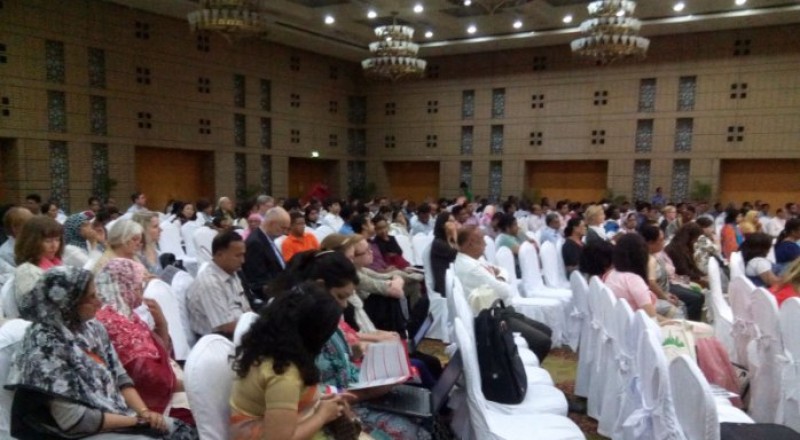Day 2 of International Conference on Urban Health at Dhaka surrounded around discussions related to reproductive health, nutrition, child health, media engagement, health service delivery and utilisation. However, the agenda that stole the show today was ‘women’s woes’ – in terms of accessibility to various health components – sexual and reproductive health, nutrition and child health and conditions caused due to the accessibility or lack of accessibility in utilisation of those specific services.
The day was marked with a strong and illuminating statement by Dr. Kaosar Afsana, Director of BRAC Health Programme as she opined, “Reproductive health of urban women is a serious issue. So, it should be taken seriously.”
Dr. Halida H. Akhtar from USAID-DFID NGO Health Service Delivery Project shared some of the innovative techniques of linking communities with the clinics providing tailor made services for the poor urban women:
- Phone Call – a helpline established where the needy would call to seek any advice on women’s health related issues or for any emergency/immediate treatment
- Savings Scheme – where women would collect some money that would go into a savings account for the treatment and care of women
- 3-Day Vigilance – to follow up on the health conditions of pregnant women
- Guidelines for Family Planning Compliance for health workers – to maintain uniformity of standards and practices of health intervention

Dr. Akhtar during her presentation
Dr. Reena Yasmin, Senior Director from Marie Stopes Bangladesh discussed about the six different approaches used by Marie Stopes in terms of linkage with the provision of services namely Multi-Purpose Service Delivery Models, One Stop Service Centres, Community Involvement, Partnership and Collaboration, Self-Sufficiency and Value for Money. It is highly appreciative of MSI to come up with various tools that are facilitating the intervention such as:
- Mood Meter to measure satisfaction of Health Service Delivery by urban health facilities
- Opportunity Card for pro-poor targeting
- Cost Calculator (an EXCEL base tool that estimates all sorts of costs – direct, indirect, administrative, others) to measure cost efficiency
- Impact Calculator
Ms. Alison Corlasio, Senior Project Associate for African Strategies for Health project implemented by Management Sciences for Health (MSH), with her stall at display in the conference shares her experience of implementing this project of documenting the urbanisation pattern with the help of media professionals in the corridor from Abidijan to Lagos which covers 5 countries in Africa. She claims, “Innovative projects with intensive media engagement such as these not only brings into the surface the persisting problem of the poor, but also underlines the importance of understanding the public health risks and opportunities caused by urbanisation.” Ms. Corlasio opined that such projects on urban mobility could also be matter of interest for policy makers and programmers particularly in South Asia where there is high emigration to the Gulf countries.

Corridor of Contrasts - capturing stories of people who live and work along the road in 5 countries of Africa
Rumana Haque from ARK Foundation shared her experience of conducting a review to assess the problems and prospects for Long Acting Reversible Contraceptives (LARC) service provision in urban areas. She recommended for strong referral process to be developed with NGO partners and private medical practitioners to increase access in urban areas.
It is a nice gesture that strong willed women themselves are coming forward to help women requiring support and encouragement, promoting women empowerment.



Comments(0)
No comments found.